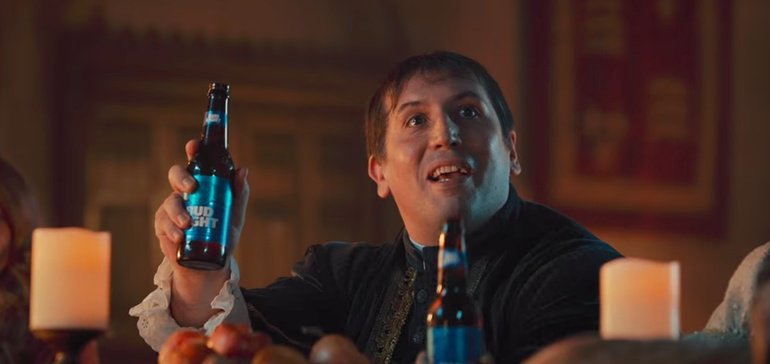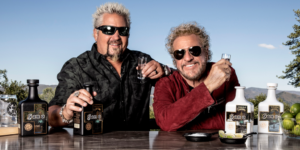
“Dilly dilly,” a nonsensical phrase prominently featured in Bud Light’s current advertising campaign, has become a viral meme success for the brand thanks to TV commercials, social media integrations and mentions on shows and live events, The New York Times reported. The phenomenon strongly echoes the ubiquity of Budweiser’s “Whassup?” tagline from the late ’90s.
Debuting last August and made with the agency Wieden + Kennedy, the creative depicts a medieval courtroom where various banquet attendees gift their king Bud Light, followed by praises of “dilly dilly.” Those that instead offer beverages like spiced mead wine are sent to a “pit of misery.”
The virality of “dilly dilly” can be attributed to Bud Light knowing its audience well and sending them the right message at the right time — namely around football games — but no one involved in its creation expected it to spread so rapidly, according to the Times. The well-received marketing effort arrives at a critical time for the beverage brand, whose parent company AB InBev underwent an executive shuffle in November amid a long period of declining sales for key products like Budweiser and Bud Light.
The virality of “dilly dilly” can be attributed to Bud Light knowing its audience well and sending them the right message at the right time — namely around football games — but no one involved in its creation expected it to spread so rapidly, according to the Times. The well-received marketing effort arrives at a critical time for the beverage brand, whose parent company AB InBev underwent an executive shuffle in November amid a long period of declining sales for key products like Budweiser and Bud Light.
Part of Bud Light’s struggles might stem from the growing popularity of craft beers, which the “dilly dilly” creative takes direct shots at by punishing the banquet attendees who offer fancier alternatives to Bud Light like spiced mead wine. This echoes a series of ads the company also rolled out in August that emphasize the brew’s simplicity while ribbing beers that are overly complex. “Dilly dilly” might be at the top of everyone’s tongues, but it will be interesting to see whether the phrase’s success translates to a much-needed sales boost.
read more at marketingdive.com







